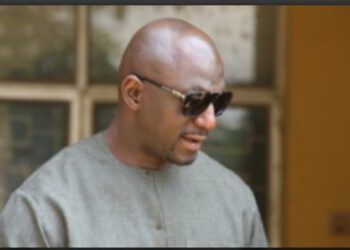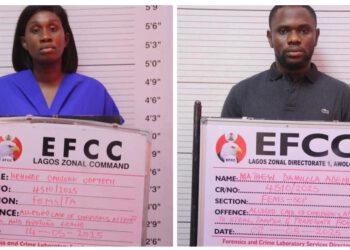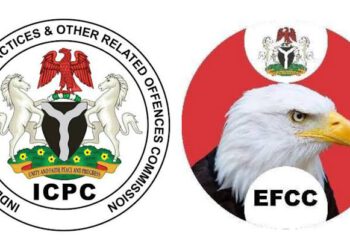As Nigerians await the appearance of former Kogi State Governor Yahaya Bello in court, the Economic and Financial Crimes Commission (EFCC) has warned anyone shielding him from complying with two separate court orders to distance themselves from Bello immediately or face prosecution.
The anti-graft agency noted that those preventing him from honoring the court orders could be brought before a court for aiding and abetting crime in the country.
According to reports, the EFCC is allegedly referring to the Kogi State Governor, Ahmed Ododo, who has been using the immunity of his office to shield his predecessor from arrest by the anti-graft agency.
The EFCC made this statement in a release yesterday, after adding more charges to the existing ones, revealing that the former governor and two others allegedly diverted N110 billion in public funds for personal use.
The agency said: “Those who harbor a criminal suspect should know that this act is also a criminal offense and is punishable by law.”
It further emphasized that corruption cases are serious criminal offenses and should not be turned into a spectacle by any suspect attempting to evade the court.
“EFCC is eager to engage the former governor in the courtroom, where the mountain of evidence painstakingly assembled can be presented and arguments made for justice to be served to all parties involved in this case.”
Supporting the anti-graft agency’s position, a renowned legal practitioner, Adeyemi Sulaimon, stated that a governor shielding a crime suspect could be arraigned and prosecuted for providing cover for a crime suspect after leaving office.
Sulaimon explained that such actions are criminal offenses under the 1999 Constitution and have no expiration, adding that a governor may be prosecuted for aiding a crime once their immunity expires upon leaving office.
He further explained that, like other criminal offenses without time limits for prosecution, aiding a crime suspect also has no statute of limitations and can be brought before the court at any time.
The legal practitioner added that all the anti-graft agency and other law enforcement institutions need is to gather evidence and take action when they are certain that the President or governor no longer has immunity protecting their actions.





















